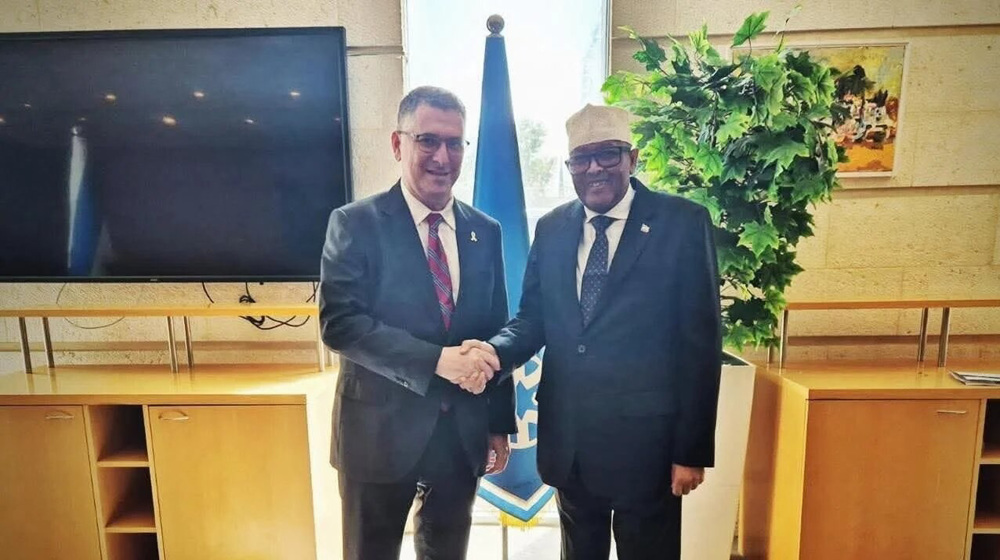Libya’s rival leaders ‘commit to ceasefire, elections’
The two main rivals in conflict-ridden Libya are committed to a ceasefire and holding elections "as soon as possible", according to a draft statement released before they began talks brokered by French President Emmanuel Macron on Tuesday.
The communique says Libya's UN-backed Prime Minister Fayez al-Sarraj and Khalifa Haftar, the military commander based in the remote east of the vast country, accept that only a political solution can end the crisis.
Diplomatic sources said the two sides had agreed on a joint statement at the talks in a chateau outside Paris but that the text being circulated was not the final version.
The 10-point version seen by AFP says the ceasefire would not apply to counter-terrorism efforts.
It also says the two sides are committed to developing the rule of law in a country where dozens of armed groups have proliferated in the power vacuum created by the toppling of longtime dictator Moamer Kadhafi in 2011.
Macron, who has made Libya one of his foreign policy priorities, organized the meeting as he seeks to raise France's international diplomatic profile. While officials admit they have modest expectations, they say the fact the two rivals are at least in the same room sends a "strong signal".
French officials are aiming to persuade the two sides to agree on a roadmap to end a conflict that has plunged the oil-rich country into chaos since Kadhafi's fall.
France, under then president Nicolas Sarkozy, was one of the Western nations that pushed hardest for the NATO air strikes that hastened Kadhafi's demise.
The newly appointed UN envoy for Libya, Ghassan Salame, chaired the talks. Macron was to make a statement at the end.
It is the second time that Sarraj and Haftar have met in the space of three months after they held talks in Abu Dhabi in May. That meeting made little progress after both sides refused to sign any agreement.

Sarraj's Government of National Accord (GNA) has sought to unify powerful factions, but despite support from the United Nations has struggled to assert its authority since it began work in Tripoli in March 2016.
A rival administration based in Libya's remote east -- with which Haftar is allied -- refuses to recognize Sarraj's government.
Extremists have profited from the turmoil, seizing the Mediterranean coastal city of Benghazi three years ago, although Haftar's forces drove the extremists out earlier this month.
Another diplomatic source involved in the talks said there was skepticism about whether the military strongman was prepared to share power.
"We have to hope that when he signs something, he will keep his word," the source said, speaking on condition of anonymity.
Human traffickers have exploited the chaos in Libya to boost their lucrative but deadly trade, and the country has this year become the main springboard for migrants seeking to reach Europe in often flimsy and overloaded boats.
Since January, more than 100,000 migrants have made the perilous voyage from Libya, with 85,000 arriving on the shores of Italy, according to the International Organization for Migration.
About 2,360 people have drowned this year attempting to make the journey, the IOM says.
(Source: AFP)
Funding lapse set to trigger US Department of Homeland Security shutdown
Gaza’s civil defense says 8,000 bodies of genocide victims remain under rubble
Iran: Israeli violations main obstacle to peace, security in Syria
VIDEO | Trump-Netanyahu meeting
VIDEO | Palestine Action wins legal challenge
Indian author pulls out of Berlinale over jury’s ‘unconscionable’ refusal to comment on Gaza
Bangladesh Nationalist Party secures victory in general election
VIDEO | British High Court rules against ban on Palestine Action Group













 This makes it easy to access the Press TV website
This makes it easy to access the Press TV website